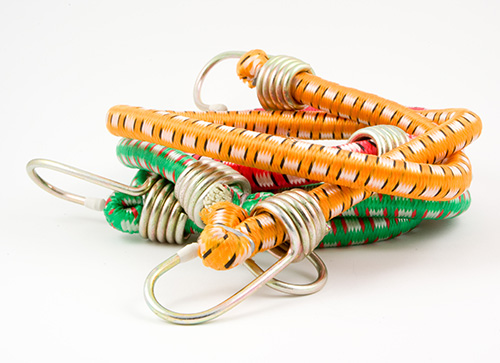- Local: (516) 346-4636
- Toll-Free: (800) 886-6060
- Fax: (516) 346-4366
- Email: kflynn@nationalwebbing.com
Everyone appreciates the importance of a work truck, especially your family or friends when they need help moving, but people don't always appreciate the elastic cord that helps keep precious cargo in its place. Elastic cord, also known as cord or rope, is a vital piece of equipment for many people, whether it's for weekend activities, daily work needs, or just the occasional hustle and bustle that may be demanded. However, that doesn't mean that all are made equally. Learn about the different types of elastic cord by reading below. It's always a good idea to pair the work you need with the best available tool for the job, so the differences really do matter.

One of the greatest benefits of elastic cord is that it can have a stretch factor of anywhere from 100 to 125 percent under heavy load. Not only does that make it able to survive an awful lot of wear and tear, but it’s also great for a multitude of different applications. It can be used for cargo control, tying down trailer covers, or for camping equipment and gear. Granted, different cords have different degrees of stretch factor, so be sure to determine what you need and match your purchase accordingly.
Some cord is marine-grade, which simply means that it's likely coated with a material like polyester. The particular jacket covering the cord will determine whether or not you're buying marine-grade cord. If you're working on boats, camping, or engaging in other activities where rain or water is an expected factor, it may be a good idea to invest in marine-grade cord. It's better suited to getting wet, and it will be able to survive the elements intact more easily and more reliably than many other selections.
Not all cords automatically come with hooks. However, hooks can be a great choice. Not only do they save you the effort of knotting and tying the cord, but the hooks can latch and attach easily, quickly, and reliably. Even if your cord didn't come with hooks, you can always purchase them separately and attach them yourself. They're a great accessory, and you're likely to get a lot of mileage out of them. They make for great tie downs and are a simple solution for a wide range of applications.